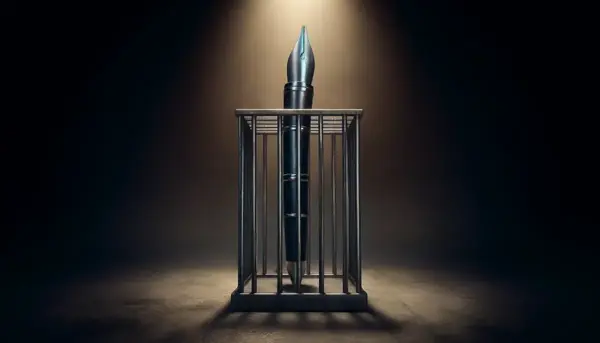BIA 2007 Media Monitoring Report: A Sad Year For Free Speech
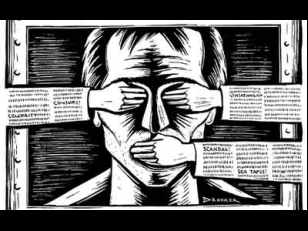
The BIA Annual Media Monitoring Report for the year 2007 has been published in Turkish and will soon also appear in English.
The report highlights the ongoing violations in the freedom of expression and press freedom in Turkey and is published at a time when the government seems to be losing momentum in reform efforts for Article 301.
The year 2007 started with the murder of Agos editor-in-chief Hrant Dink, who will be commemorated at the site of the murder on Saturday (19 January). The charges under Article 301 against Hrant Dink were dropped posthumously, but his son was convicted in the same case.
There were also many other violations of the freedom of expression.
Sixty pages of violations
The sixty-page report is divided into sections entitled “attacks and threats”, “detentions and arrests”, “trials of press freedom and freedom of expression”, “corrections and legal redress”, “European Court of Human Rights”, “reactions to censorship”, and “implementations of RTÜK [the Radio and Television Supreme Council]".
Attacks and threats
In 2007, 34 journalists and 12 media institutions were attacked. 22 people, most of them journalists, and 6 media institutions were threatened. In 2006, 26 journalists were attacked and seven journalists and 2 media outlets were threatened. In addition, three websites were sabotaged by hackers in 2006.
Media being targeted
The annual report notes that although there has been a slight reduction in the number of trials, there has been an increase in threats and attacks on the press. In addition, newspapers have been forced to reveal sources, journalists have practiced self-censorship, and there has been pressure from the masses; these are indications that freedom of expression is still obstructed.
The judiciary has been under pressure from the military and politics. People who express their opinions still face the threat of imprisonment. The ruling Justice and Development Party (AKP) has not made any efforts to amend the laws on freedom of expression.
Intolerance fuelled among the public has led to the attack on Greek journalist Andreas Rombopulos, the Turkey correspondent for the Greek Mega TV channel and editor-in-chief of the Iho newspaper. In addition, journalists at Agos newspaper, employers of Özgür Radio and academics have all faced threats.
Article 301 and others still used in many trials
BIA points out that the practice of the judiciary is important. In 2007, there were 159 cases involving 525 people, 269 of them journalists. Of these 525, 254 people, journalists, writers, publishers, human rights activists and politicians, were taken to court for their opinions. In 2006, this number stood at 293.
Last year, 55 people were tried under Article 301 of the Turkish Penal code for “denigrating state institutions”; six of them, Emin Karaca, Arat Dink, Serkis Seropyan, Umur Hozatli, Eren Keskin and Mahmut Alinak, were convicted, while nine were acquitted. Article 301, which was passed in June 2005, and its predecessor Article 159 have seen at least 99 people on trial in the last two and half years.
In addition, of the other 199 people on trial, 37 were being tried for “insult” or “slander”, 23 for “inciting to hatred and hostility”, 14 for “influencing the judiciary”, 8 for “alienating the public from military service”, and one for “membership in an illegal organisation”. 83 people became defendants in cases of “terrorism”.
Among those put on trial for “spreading terrorist propaganda” or “being members of a terrorist organisation” (under the Turkish Penal Code and the Law on Terrorism) were Aysel Tugluk, Hilmi Aydogdu, Sebati Karakurt, Hasan Kilic, Necdet Tatlican, Kemal Bozkurt, Özgür Kaplan, Hüseyin Tunc, Ferhat Tunc, Mihdi Perinçek, Selahattin Demirtas, Özgür Söylemez, Umur Hozatli, Ferit Demir,Haydar Toprakci, Abdülkadir Özbek, Rüstü Demirkaya, Hatip Dicle, Hasan Cakkalkurt, Aydin Dogan and Namik Durukan.
Some of the people facing high compensation claims or imprisonment for slander or insult are Yakup Önal, who faces a possible 10 years imprisonment for his “Pinocchio stories”, Mustafa Koyuncu, who faces 6 years imprisonment and 440,000 YTL (around 250,000 Euros) compensation payments for accusing the police of maltreatment, and Nurgün Balcioglu, who faces compensation payments of 100,000 YTL (around 57,000 Euros) for criticizing a retired judge who had said “In nine out of ten murder cases there is a woman involved.” Cartoonist Muhammet Sengöz has been sentenced to 11 months and 20 days imprisonment. Thirty people expressing their thoughts on the Kurdish issue are being prosecuted for “praising a crime and a criminal.”
BIA demands that the Turkish Penal Code, the Law on Terrorism, the Law on Crimes against Atatürk and the Press Law be changed in order to conform to universal legal standards. BIA also calls for prison sentences to be avoided.
Reporting on armed conflict obstructed
The renewed armed conflict in the Kurdish question means that reporting in the southeast of the country has become difficult. Le Monde reporter Guillaume Perrier, and Capa Agency employees Estelle Vigoureux and Marc de Banville from France were stopped at the Habur border gate and their materials were confiscated. They were detained for 30 hours.
The government asked RTÜK to introduce a broadcasting ban on the battle in Daglica, in the southeastern province of Hakkari, where 12 soldiers were killed and eight taken hostage. The state council overturned the ban later. There were further broadcasting and publishing bans on the hostage soldier case, and two other cases – the bombing of a goods train between Tatvan and Elazig in the east of Turkey, and the bombing of a trade area in Ankara.
Journalists under pressure to reveal sources
There was an increase in public officials violating the secrecy of journalists’ sources. For instance, the prosecution thrice permitted the confiscating of materials from Dogan News Agency reporter Emin Bal in Beytüssebap, in the southeastern province of Sirnak. In addition, a case against Bal was opened under Article 278 of the Turkish Penal Code for “neglecting to inform authorities of a crime”, after he did not inform the police when pro-PKK slogans were shouted at a funeral he was reporting on.
Media outlets forced to close
The Kurdish Azadiya Welat was handed a publishing ban, as was the Gündem newspaper, which has changed names several times. Both have been accused of spreading PKK propaganda. The weekly Nokta magazine has been forced to close down completely. The Antalya Chief Public Prosecution confiscated the test edition of the Hürriyet Mediterranean newspaper on 22 March.
Internet filtres and censorship
Filtre programmes produced by software companies and frequently used in Internet cafés blocked access to bianet.org, alinteri.org, and atilim.org. In addition there were access bans of various lengths for the www.antoloji.com, Eksisözlük, Superpoligon, www.8sutun.com, and alinteri.net websites.
RTÜK censored news programmes. Particularly during the pre-election campaign it handed out punitive broadcasting bans to channels, among them Kanaltürk. RTÜK cautioned NTV for citing Cypriot Minister of Foreign Affairs Erato Kozaku-Marcoullis, who had described Turkey as “the occupier of Northern Cyprus.”
Compensation claims from ECHR
The European Court of Human Rights (ECHR) sentenced Turkey to paying a total of 123,912 Euros (around 219,080 YTL) compensation in 2007. In the previous year, Turkey had to pay 221,128 Euros in 45 cases. Since 2005, the amount of compensation paid each year has been decreasing.
Those winning cases at the ECHR in 2007 included Akin Birdal (2), Mehmet Nuri Karakoyun, Mehmet Salih Turan, Hidir Ateş (3), Hünkar Demirel (3), Ömer Sükrü Asan, Mahmut Sakar, Vedat Cetin, Erdal Tas, Evrim Alatas, Lales Arslan, Mehmet Burtakucin, Zeynal Akgül, Abdulvahap Tas, Azad Özkeskin, Bozkur Mevlüt, Ragip Zarakolu, Hasan Celal Güzel, Meral Tamer, Eren Güvener, Mehmet Colak, Mehmet Selim Okçuoglu, Tuncay Seyman, Fevzi Saygili (2), Saim Üstün, Ilyas Emir, Osman Özcelik, Bülent Falakaoglu, four actors of the “Enemy of Justice” theatre play and the 12-member “Teatra Jiyana nü” theatre group and Özgür Radio.
There were only two appeals which the ECHR rejected, those of Hünkar Demirel and former Kayseri mayor Sükrü Karatepe. (EÖ/AG)
BİA MEDIA MONITORING REPORT 2024
The government made journalists' lives a living hell in 2024
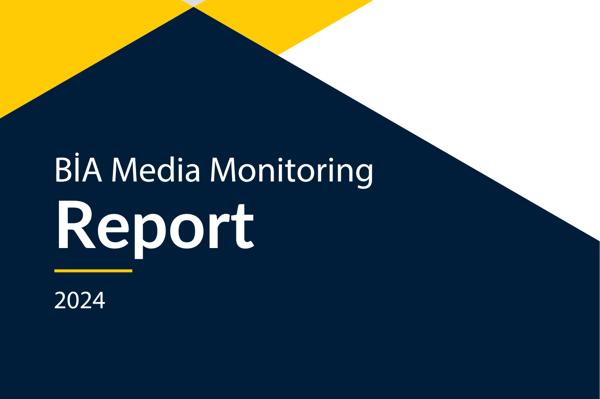
BİA MEDIA MONITORING/OCTOBER-NOVEMBER-DECEMBER 2024
Truth concealed through repression from all sides targeting journalists
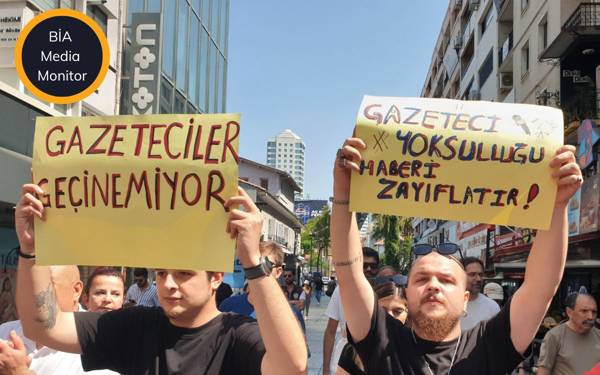
BİA MEDIA MONITORING REPORT
Just silence the journalist, and I won't touch you!
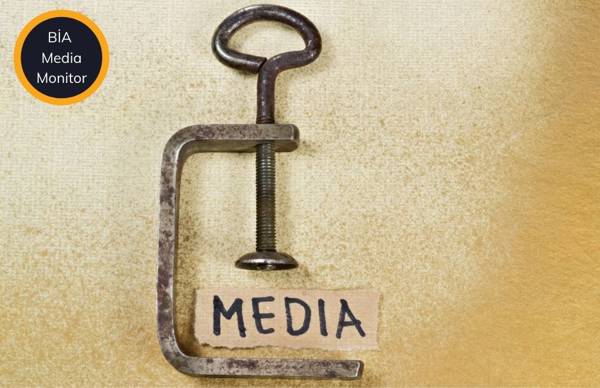
BİA MEDIA MONITORING APRIL-MAY-JUNE 2024
Journalists are on the target and have no legal security anymore!
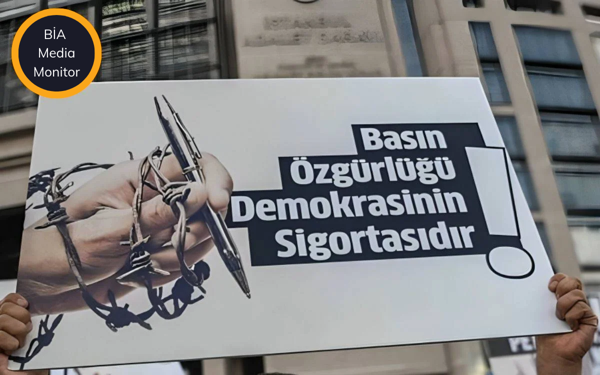
BİA MEDIA MONITORING REPORT
The era of 'judicial control' confinement and torture in journalism
